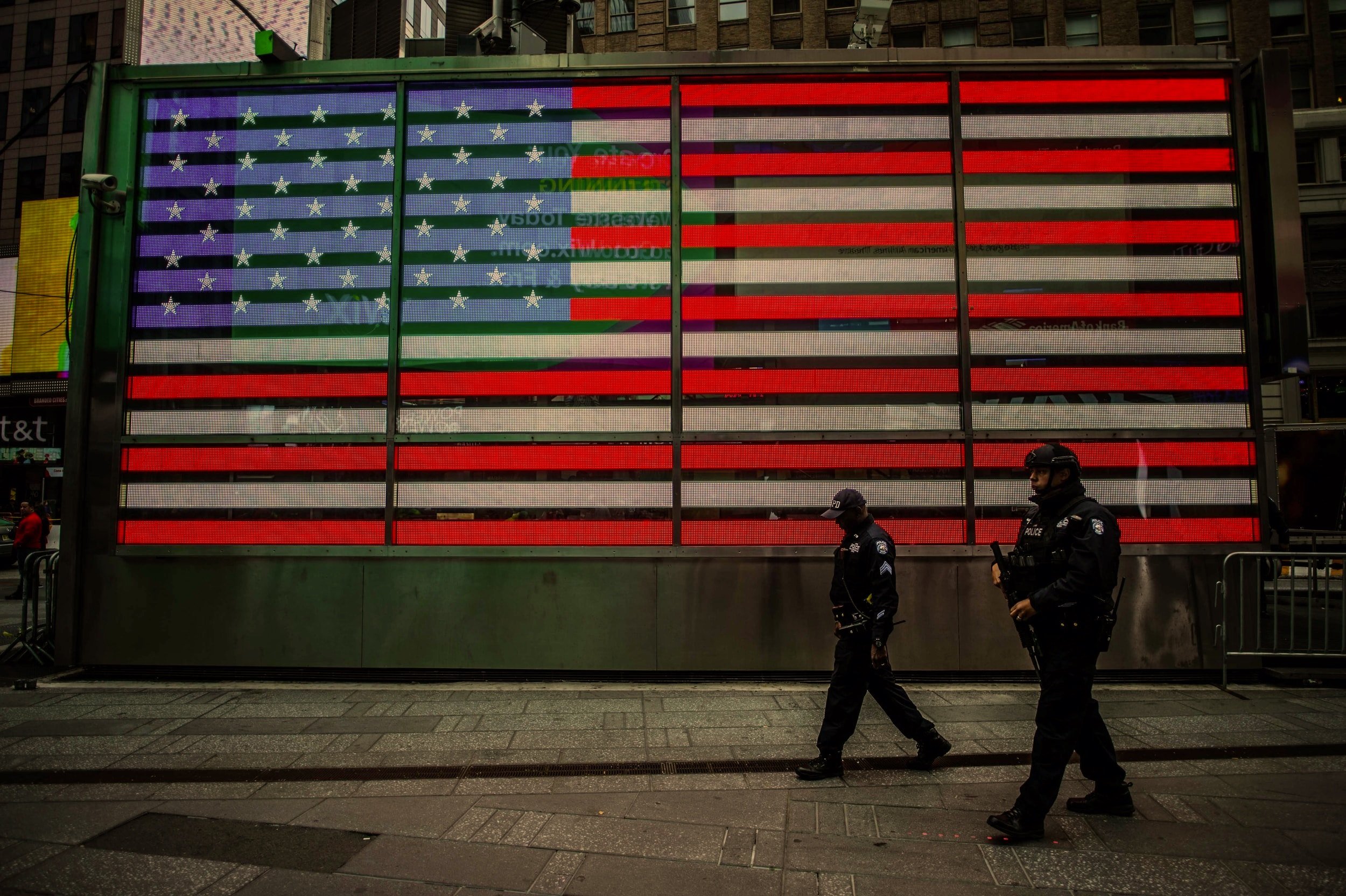
Case Story: Winning a federal drug case
We got 65 pounds of drugs suppressed and saved our client nearly two decades in prison by reviewing the evidence carefully, identifying a questionable traffic stop, and challenging it. It was one of the largest amounts of drugs suppressed in recent North Dakota history.
DISCLAIMER:
CASE RESULTS DEPEND ON A VARIETY OF FACTORS UNIQUE TO EACH CASE. CASE RESULTS DO NOT GUARANTEE OR PREDICT A SIMILAR RESULT IN ANY FUTURE CASE.
This case presents a difficult moral question — is it OK for a police officer to illegally search a person’s car if it results in drugs being found in the car?
Put another way, do the ends justify the means?
In the District of North Dakota, the answer is no.
The Traffic Stop
Our client and his wife were traveling from Sacramento to Minneapolis. While they were driving through Fargo, a police officer pulled them over for following the car in front of them too closely (they dispute this).
After pulling them over, the officer gave the driver, our client’s wife, a traffic ticket. The officer asked her to come to his patrol car while he processed the ticket.
What happened next is where things got interesting.
While processing the ticket, the officer began asking our client’s wife a series of questions. Some were related to the traffic stop and some weren’t.
The officer then asked her a series of drug-related questions; basically whether the car had any drugs in it. Because she truly didn’t think there were drugs in the car (our client hadn’t told her), she said no. The officer didn’t believe her and asked permission to search the car.
Again believing there were no drugs in the car, she said yes.
A drug dog was called and a large amount of drugs were found during the search of the car. Both the client and his wife were arrested and charged with possession of drugs with the intent to distribute them.
The Legal Challenge
When our client told us what happened, we immediately challenged the legality of the traffic stop. Mr. DeKrey filed a motion to suppress all the evidence the officer found as a result of the traffic stop — specifically the large amount of drugs found in the car.
Let’s stop here and explain what “suppressing evidence” means. Basically, it means whatever the police officer found cannot be used in court as evidence.
Here, that would mean all the drugs found in the car would essentially disappear. So while in the real-world the drugs were found, in the legal-world they were not.
Simply put, if this worked, our client and his wife would go free.
Which would be a really big deal.
The motion was based on a legal rule called Rodriguez, which says that police officers can’t unreasonably extend traffic stops in order to investigate things unrelated to the stop.
However, if during the stop the officer begins to reasonably believe that other illegal things are happening, he can investigate those things even if they’re unrelated to the stop.
Like with lots of the law, this sounds pretty confusing.
So let’s apply it to this case.
Mr. DeKrey argued that the police officer had violated Rodriguez because he unreasonably extended the traffic stop by asking our client’s wife questions unrelated to the stop.
The stop was for following another car too closely. During this kind of a traffic stop, an officer is usually only allowed to ask certain questions. Here, the officer went beyond those permissible questions and asked impermissible ones, most notably drug-related ones.
Since nothing about following too closely triggers a suspicion about drugs, they shouldn’t have been asked, and the fact that they were illegally extended the stop.
The government argued the opposite.
While the officer initiated the traffic stop because the client’s car was following another car too closely, things changed quickly due to the way the client and his wife were acting.
This was true both before and during the stop. Based on their suspicious behavior, the officer began to reasonably believe that other illegal things were occurring, namely that the client and his wife had drugs in their car.
And since the stop had now changed from being traffic-related to drug-related, the drug questions were permissible and didn’t illegally extend the stop.
When parties disagree on what happened, it’s the government’s job to prove that their story is true. If they can’t, the suppression motion is granted.
Here, that meant the government had to prove that the officer reasonably believed other illegal things beyond the traffic stop were happening. If they were, then the officer’s drug-related questions were OK. If not, they weren’t.
The government said the officer thought illegal things beyond the traffic violation were happening for both pre and post-stop reasons.
When the officer pulled next to our client’s car, his client’s wife reduced the car’s speed significantly.
The client’s wife wouldn’t make eye contact with the officer when the officer pulled next to their car, and she also didn’t look at her husband while she was driving and talking to him.
She seemed “rigid and stiff” while driving.
It took our client’s wife about 30 seconds to pull over after the officer flipped on his lights.
The officer thought the car was off course driving from Sacramento to Minneapolis.
Our client and his wife were traveling without children, despite mentioning them to the officer.
Our client’s wife appeared to be nervous in the patrol car, including laughing about unfunny topics, like the color of her hair.
We explained how each of these “reasons” didn’t mean something illegal was happening and instead were attempts by the officer to justify his bad behavior after the fact.
Any time a police officer pulls behind someone, they slow down.
Our client’s wife was keeping her eyes on the road. That’s not suspicious, it’s the safe thing to do.
Some people drive more “stiffly” and “rigidly” (whatever that means) than others and it doesn’t mean they’re acting illegally.
It took our client’s wife 30 seconds to pull over because she was waiting to find a safe place; she wasn’t avoiding it.
The route made sense after an explanation by our client’s wife, and it was also corroborated by Google Maps.
Traveling without children proves nothing. Many people travel without their children and are not acting illegally.
Our client’s wife wasn’t nervous — the officer was exaggerating. Listening to the audio recording proves this.
The judge had to weigh these competing arguments and decide whether the stop was illegally extended.
The Decision
After months of deliberation, the judge sided with our client and his wife.
Here’s what she said:
The pre-stop indicators the officer described—slowing down when observing a patrol vehicle, driving in a “rigid” manner, and not looking at him when he paralleled the vehicle— are not indicative of criminal activity. Rather they are normal behaviors anyone might exhibit while driving.
Nor does this court view information the officer gained during the 8 ½ minutes he questioned the driver (the client’s wife) as constituting reasonable suspicion of illegal activity. The driver’s explanation of choosing a route through North Dakota and traveling without her children are not indicative of criminal behaviors.
Moreover, the officer did not complete the traffic warning promptly… apart from printing the warning, the officer had completed the mission of issuing the warning prior to asking the second round of drug-related questions and prior to asking the driver’s (our client’s wife) consent to search the vehicle.
Here, prolonging the traffic stop caused the driver’s (our client’s wife) consent and the canine sniff.
Had the officer completed the mission of the traffic stop within the bounds of Rodriguez, the canine sniff would not have been conducted, and the stop would have been completed several minutes prior to the officer obtaining the driver’s consent to the search.
Translation: the search was illegal so the drugs no longer exist.
And since technically no drugs were found, the government had to drop the case against our client and his wife.
The Takeaway
So back to the underlying moral question of the case — do the ends justify the means? The judge decided no.
And that’s because judges understand the Constitution must always be greater than an individual case.
Here, it was better to let a guilty person go free than to chip away at the Fourth Amendment and allow police officers to violate peoples’ constitutional rights. Because each time you allow the Fourth Amendment to be chipped away, it becomes a little easier next time. And the time after that. And before you know it, the entire Fourth Amendment is gone.
Judges are here to prevent that from happening.
Our client was wrong. But the officer was more wrong.
The judge saw that and sided with us.
Additional Case Stories
-

Fighting for Release During the COVID-19 Pandemic
We were one of the first law firms in the country to get a client released from jail because of the risk posed by COVID-19.
-

Winning a Federal Felon in Possession Case
Our client’s house caught fire, and when firefighters arrived, they acted like cops instead of firefighters. We challenged the legality of their conduct and won.
-

Winning The First Federal Illegal Reentry Case Of Its Kind
We were one of the first law firms in the country to take a Supreme Court immigration ruling and apply it to a criminal conviction – and win.

